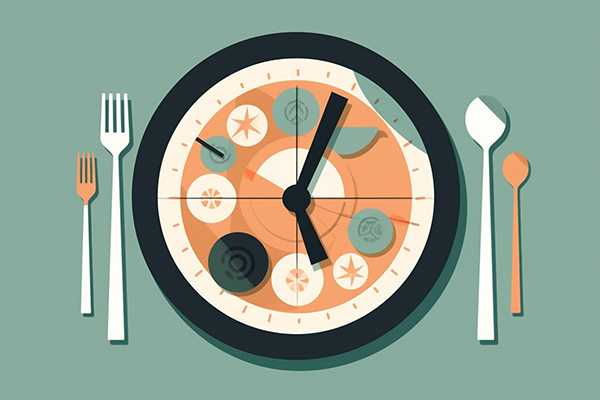In this article, we explore the question of whether fasting has any impact on height growth. While fasting is known to have various health benefits, its direct correlation with increased height remains a topic of interest. We delve into the scientific evidence and theories behind the relationship between fasting and height growth, examining factors such as nutrient intake, growth hormone production, and overall health. By understanding the potential effects of fasting on height, readers can gain insights into its influence on growth during developmental stages.
What is fasting?
Fasting, also known as intermittent fasting, is a dietary approach that deviates from the traditional meal schedule. Instead of consuming three meals per day, fasting involves restricting eating to one to two meals within a 24-hour period. It emphasizes when to eat rather than the specific foods to consume. Fasting is not considered a conventional diet but rather a specific eating pattern.
A brief history of fasting
Although intermittent fasting has recently gained popularity, its practice can be traced back to ancient times, observed not only by humans but also by animals. During the era of hunting and gathering, when food sources were scarce, fasting naturally occurred as a survival mechanism for both humans and animals.
As civilization progressed, fasting became intertwined with various religious and philosophical beliefs. It held significance in biblical references such as the fasting of Moses, found in ancient Greek philosophical practices, and as an integral part of Ramadan observed in Islam. Fasting served as a means of self-discipline, reflection, and appreciation.
In modern times, fasting has gained significance not only for religious reasons but also as a symbol of health when combined with other dietary plans.

Different Types of Fasting
Fasting can be practiced in various ways, all of which involve dividing the day or week into specific periods of eating and periods of not eating.
By disrupting your regular eating schedule, fasting prompts your body to utilize stored fat as an energy source. During fasting, you consume very little or nothing at all. This can create the illusion of increased height by slimming down your body, especially if you have a larger build.
Here are some common types of fasting:
Leangains (16/8 Technique):
The Leangains method involves skipping breakfast and limiting your daily eating window to an 8-hour period, such as 2–10 p.m. You then fast for 16 hours without snacking. This is a popular fasting method and serves as a great introduction to fasting.
Eat-Stop-Eat:
The Eat-Stop-Eat method requires fasting for a full 24 hours once or twice a week. For example, you would not eat from dinner today until dinner the next day. If fasting two days a week, ensure they are nonconsecutive. Extended fasting periods like this may have benefits for weight loss, blood pressure, and blood glucose levels, but they can also lead to fatigue, irritability, mood swings, and intense hunger.
5:2 Diet Plan:
The 5:2 diet plan involves two nonconsecutive days of fasting per week, where you consume only 500 to 600 calories per day. On the remaining five days, you can eat normally. This plan can aid in short-term weight loss and serves as a good introduction to more advanced fasting practices.
Alternate-Day Fasting:
With alternate-day fasting, you fast every other day and eat normally on alternate days. You can start by consuming only 500 calories on fasting days to get accustomed to the routine. Once comfortable, you can proceed to full-day fasting without any food or snacks on alternate days, significantly reducing your daily calorie intake.
Note: If you have any health concerns or conditions, it’s advisable to consult a healthcare professional before attempting any fasting regimen.
Can fasting contribute to an increase in height?
Fasting alone does not directly impact height increase. Height growth primarily occurs during the growth period, and once puberty is complete and bones fuse, further height growth is unlikely, regardless of fasting or other methods. An X-ray examination can help determine if an individual has reached their height development limit. While some people may stop growing around age 15, others may continue to experience height growth even after age 22.
Additionally, it is important to focus on consuming foods that provide the most benefits during fasting. Prioritizing fresh and nutritious foods while avoiding highly processed, sugary, and sodium-rich items is recommended.
During fasting, there is a significant increase in Human Growth Hormone (HGH) levels, which plays a role in physical development and fat breakdown. Incorporating fasting into a daily routine can help the body utilize excess fat as an energy source.
By promoting weight loss and preventing a decrease in growth hormone production, fasting may support a healthier and more efficient pituitary gland, potentially contributing to reaching maximum growth potential.
Frequent eating leads to insulin spikes as the body releases insulin with each meal, regardless of size. By reducing meal frequency to one or two per day, insulin spikes can be minimized, allowing for natural growth hormone secretion.
Considering these effects, fasting may potentially support optimal growth hormone production in the body.
It is important to note that while fasting may offer some potential benefits, consulting with a healthcare professional is crucial before making significant changes to one’s diet or lifestyle, especially when height-related concerns arise.

Can fasting during puberty affect height?
During puberty, proper nutrition is essential for optimal growth and development, including reaching one’s potential height. While short-term fasting or intermittent fasting may not have a significant impact on height, prolonged or extreme fasting during puberty can potentially affect growth.
During adolescence, the body goes through significant changes, including the growth plates in the long bones closing, which marks the end of vertical growth. Adequate nutrition, including a balanced intake of macronutrients, vitamins, and minerals, is crucial for supporting bone growth and overall development during this period.
Severe calorie restriction or prolonged fasting can lead to inadequate nutrient intake, which may hinder proper growth and development. Insufficient calories and nutrients can negatively impact hormone production, including growth hormones, which play a vital role in height growth.
Additionally, extreme fasting or restrictive eating patterns can lead to nutritional deficiencies and result in delayed puberty or stunted growth. It is important to maintain a healthy and balanced diet during puberty to provide the necessary nutrients for optimal growth and development.
If there are concerns about height or nutritional needs during puberty, it is recommended to consult with a healthcare professional who can provide personalized guidance and ensure appropriate nutrition to support healthy growth.
Are there any risks associated with fasting for height increase?
While fasting itself may not pose direct risks for height increase, there are certain considerations and potential risks to be aware of:
- Inadequate nutrient intake: Prolonged fasting or severe calorie restriction can lead to inadequate intake of essential nutrients necessary for proper growth and development. Insufficient nutrients, especially during critical growth stages like puberty, can impact overall health and potentially hinder height potential.
- Delayed puberty: Extreme fasting or restrictive eating patterns can disrupt hormonal balance and delay the onset of puberty. This delay can affect the timing and duration of the growth spurt that occurs during adolescence, potentially impacting height growth.
- Nutritional deficiencies: Fasting for extended periods may increase the risk of developing nutritional deficiencies. Essential nutrients like protein, vitamins, minerals, and fatty acids are crucial for bone health, muscle development, and overall growth. Inadequate intake of these nutrients can affect height growth and lead to other health complications.
- Impact on energy levels and well-being: Fasting can result in low energy levels, fatigue, and potential mood swings. These factors can impact overall well-being and may affect physical and mental performance during important growth stages.
- Disrupted eating patterns: Overemphasis on fasting or strict eating schedules may lead to an unhealthy relationship with food and potential development of disordered eating patterns. It is important to maintain a balanced approach to nutrition and prioritize overall health rather than solely focusing on height increase.
It is crucial to consult with a healthcare professional or a registered dietitian before adopting any fasting regimen or making significant changes to your diet, especially during critical growth periods. They can provide personalized guidance, assess individual needs, and ensure a safe and appropriate approach to support healthy growth and development.
Summary:
In conclusion, fasting alone does not directly contribute to an increase in height. While it may create the illusion of increased height through weight loss, fasting does not affect bone structure or growth plates. However, fasting can indirectly impact growth hormone production, particularly during the development stage.
It is important to consider the following factors: Firstly, fasting is more effective for individuals who are overweight or in good health. If you are malnourished or have chronic illnesses, it is advisable to consult a doctor before attempting fasting. Secondly, although fasting allows food choices, it is recommended to follow a balanced and nutritious diet for optimal nutrition. If weight loss is desired, it is crucial to consume fewer calories than you burn, and combining fasting with a healthy diet can help boost metabolism and facilitate weight loss.
- Related post: When do girls stop growing?

Erik Kelly with more than 30 years of working in the field of technology and games. Erik Kelly will answer all your questions related to the latest technology products, new game reviews at Timrim.com website.